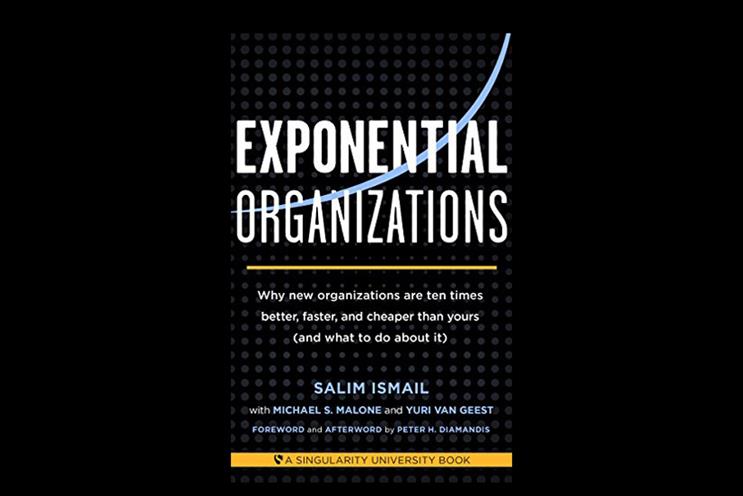8/10
Reviewed by Marina Cheal, chief marketing officer, Reevoo
I’m chief marketing officer at , a global SaaS business that connects brands to their advocates and gets them talking. We’re a growth stage company, and we’re constantly re-evaluating how we structure to succeed.
As a result, I’m always fascinated by a good corporate strategy book and recently reads by Salim Ismail with help from Michael Malone and Yuri van Geest.
It's a good read if you are thinking about scaling in the new digital and data world. It looks at leftfield ways of structuring your business to deliver double digit growth - and fast. It’s relevant to any size business, and uses examples across many industries.
It also looks at ways in which you can grow exponentially as a company without tons of people or resources - in fact, on the contrary, traditional scaling methodology in this new tech age is more likely to slow you down; and if you slow down, you can very quickly become irrelevant (think Blockbuster vs. Netflix).
Exponential really means 10x and the book does pull out all the most obvious examples, from GitHub to Airbnb. But it’s true, these days planning for linear growth is an outdated phenomenon.
There’s a concept called MTP which is all about thinking big. If you don’t have a transformational mission statement that everyone in the organisation can get out of bed for, then you’re likely to plod along. Shoot for the stars and you’ll hit the moon I guess - but with better analogies.
The authors analyse how to scale by outsourcing and how to structure so that approach doesn't turn into chaos; the key here is to know exactly where your IP lies.
They discuss the importance of social and the power of the crowd. A really interesting concept for any brand like ours, with a B2C angle.
The other fascinating thing the book covers is how people who will be consumers or employees who were born post-1984, behave so differently and are motivated by such different things that it's easy for organisations and brands to lose touch. This applies to how we lead and manage, how we communicate and share, through to how to involve and engage tomorrow's consumers.
Finally, a great take out for me was how trust, openness, and good clear aligned execution is fundamental (basics, huh?). If your growth leaders don’t align, then you won’t get far; you have to have a shared attitude to taking risks and failing, which is all part of it.
Note, thankfully, it’s not one of those books that repeats the punchline within every paragraph. Not everything is realistic or applicable to everyone, but a lot of the learnings are really useful.
Applying transformational change is a cultural paradigm shift – which has to have buy-in from the entire organisation, starting from the top.
Six key take outs
- Having a big ambition means you’re more likely to get further
- Don’t assume you have to double resource to double growth
- Community and crowd are incredibly important levers for your brand
- Traditional ways of talking to millennials is not only a bit irrelevant – it will fail
- If you plan for linear growth you’ll deliver linear growth


